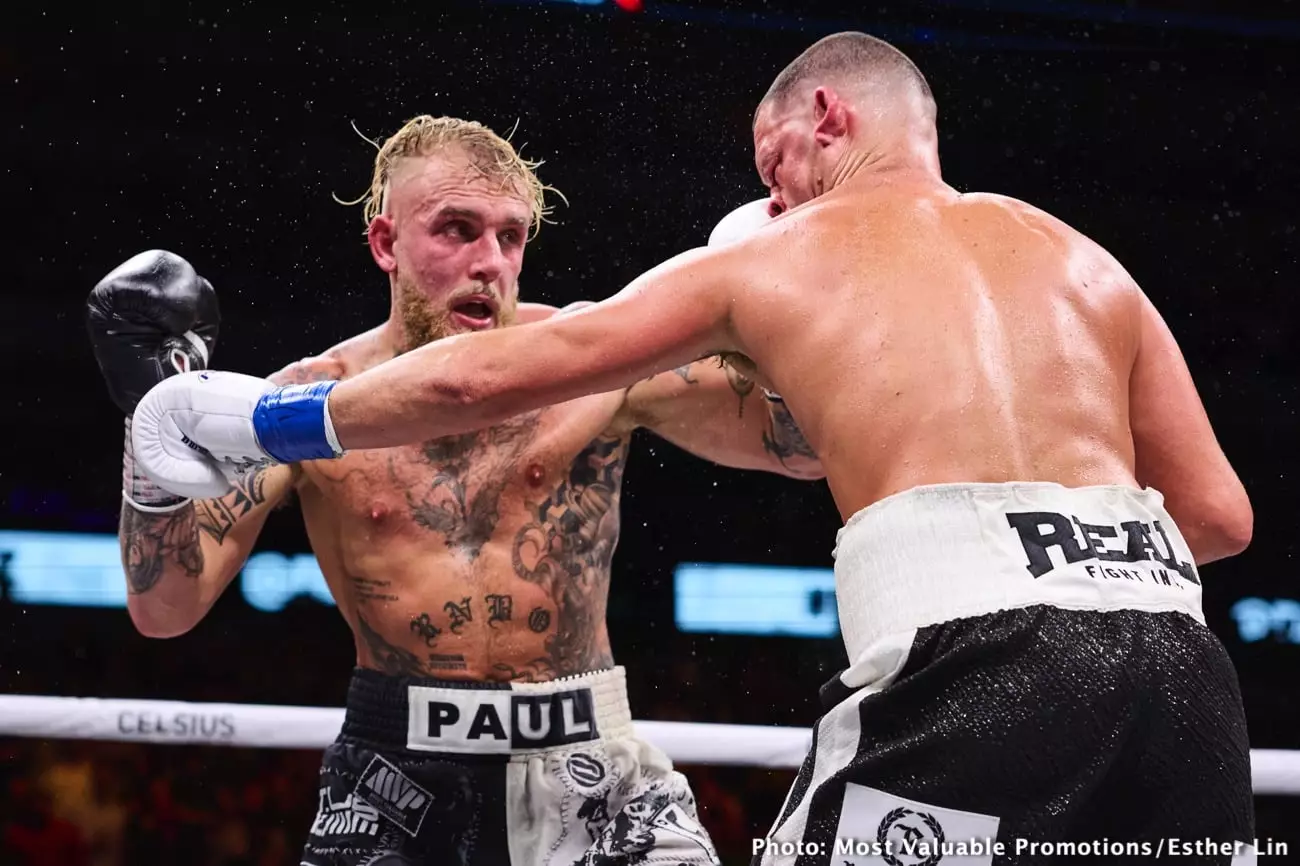The world of boxing has recently witnessed a significant shift, marked by the rise of celebrity fighters and exhibition matches that blur the lines between genuine competition and entertainment. One of the most striking examples of this phenomenon is the upcoming fight between 58-year-old Mike Tyson and YouTube sensation Jake Paul. Scheduled to take place at AT&T Stadium in Arlington, Texas, this match has drawn intense scrutiny from boxing purists and analysts alike. Many experts, including noted trainer Dave Coldwell, have expressed their disdain for what they perceive as a farcical representation of the sport.
This fight is indicative of a broader trend within the boxing community—one that prioritizes entertainment value over traditional competitive standards. Coldwell has characterized the event as a marketing ploy rather than a legitimate contest, highlighting that the fight’s structure—featuring 14-ounce gloves and two-minute rounds—strikes at the core of boxing’s integrity. He suggests that the fight is less about athletic prowess and more about capitalizing on Jake Paul’s substantial social media following.
Coldwell’s argument rests on the idea that boxing should maintain a level of authenticity, and that matches should reflect the skills and experience of the contenders. He pointedly questions the ethics of pitting a youthful influencer like Jake Paul against a retired legend, a man who has not competed in years and, as Coldwell aptly notes, has not performed well in decades. The trainer’s concerns articulate a sentiment shared by many within the boxing community: the fight seems to prioritize financial compensation over sportsmanship, glossing over the physical and emotional safety of both fighters.
The juxtaposition of a seasoned athlete nearing retirement age with a young, brash challenger paints a troubling picture. Coldwell urges that if Paul intends to be taken seriously in the boxing world, he should face genuine boxers rather than those lured by monetary incentives or fame from other domains. His remarks emphasize the notion that this matchup could ultimately undermine the sport’s long-standing reputation and the value of genuine competition.
The financial backdrop of this fight cannot be overlooked. With Paul offering Tyson a staggering $20 million—a figure that likely eclipses what he could earn fighting an active boxer—one must question the motivations driving both parties. For Tyson, the financial allure may be too tempting to resist, especially given the lack of comparable offers at his age. Therefore, the fight seems less a testament to athletic accomplishment and more an emblem of capitalism within sports, where dollar signs overshadow the spirit of competition.
Moreover, the involvement of Netflix, a platform striving to capture live sports audiences, only serves to amplify the importance of viewership over athletic merit. Coldwell’s critique highlights the short-sightedness of prioritizing entertainment: a cycle that fosters exhibitions rather than authentic fights could lead to long-term repercussions within boxing, as fans begin to question the legitimacy of various matchups.
As boxing grapples with this new reality, the question remains: how can the sport reconcile its roots with the modern age of celebrity-driven spectacles? Critics like Dave Coldwell voice a growing concern that the integrity of boxing could suffer if more fighters emulate the celebrity model championed by figures like Paul.
Ultimately, this conundrum raises larger questions about the direction of boxing. Will we see a return to traditional bouts where fighters demonstrate extensive training and skill, or will the draw of financial gain continue to overshadow the competitive spirit? As boxing fans weigh in, the hope is that both promoters and fighters alike will recognize that their actions today will shape the future of the sport—whether through the lens of credibility or mere sensationalism.
The clash between Jake Paul and Mike Tyson is more than just another athlete’s contest; it is a reflection of society’s evolving relationship with sport—a complex interplay of entertainment and authenticity that calls for critical examination. The boxing community must grapple with these pressing issues to protect the sanctity and legacy of a sport that has captivated audiences for generations.

